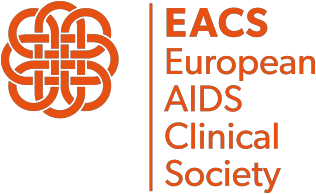Readiness to Start/Maintain ART
ART
This section provides an overview of the important aspects of ART management. Recommendations are based on a range of evidence, in particular it is weighted towards randomised controlled clinical trials. Other data have been taken into account, including cohort studies, and where evidence is limited, the panel has reached a consensus around best clinical practice. The ART section is wide ranging and, with the recommendation to start therapy independently of CD4 count, there is an important section on readiness to start. Treatment recommendations are based on drugs licensed in Europe and range from initial therapy through to switching with or without virological failure. Two important areas of ART are highlighted: pregnancy and TB. Details on the use of PrEP are also included.
Assessing Readiness to Start and Maintain ART
Goal: to help persons start and/or maintain ART(i)
Starting ART is recommended for all persons with HIV regardless of CD4 count to reduce the morbidity and mortality associated with HIV infection, and to prevent HIV transmission. Starting ART on the same day after establishing a diagnosis of HIV infection is feasible and acceptable for newly-diagnosed individuals. Nevertheless, assessment of the readiness to start ART is essential to allow the person to express their preference and not feel pressured to start ART immediately, unless clinically indicated.
Given the need for lifelong treatment, successful ART requires a person's readiness to start and adhere to the regimen in a sustained manner. The trajectory from problem awareness to maintenance on ART can be divided into five stages. Knowing a person's stage, health care providers use appropriate techniques to assist them to start and maintain ART.
Identify the person's stage of readiness using WEMS(i) techniques, and start discussion with an open question/invitation:
“I would like to talk about HIV medicines.” [wait] “What do you think about them?”
Based on the person’s response, identify his/her stage of readiness and intervene accordingly(ii)
Immediate (i.e. same day) start of ART should be considered, especially in the following situations:
- In the setting of primary HIV infection, especially in case of clinical signs and symptoms of meningoencephalitis
- In a setting where loss-to-follow-up is more likely if ART is not started the same day
- During pregnancy
- In settings where there is high risk of transmission (e.g. engagement in chemsex and group sex)
Stages of Readiness to Start ART
| Pre-contemplation: "I don't need it, I feel good" "I don't want to think about it" |
Support: Show respect for the person's attitude. Try to understand the person's health and therapy beliefs. Establish trust. Provide concise, individualised information. Schedule the next appointment |
|---|---|
| Contemplation: “I am weighing things up and feel torn about what to do about it” |
Support: Allow ambivalence. Support the person in weighing pros and cons. Assess the person's information needs and support his/her information seeking. Schedule the next appointment |
| Preparation: “I want to start, I think the drugs will allow me to live a normal life” |
Support: Reinforce the person's decision. Decide with the person which is the most convenient regimen. Educate the person on adherence, resistance, undetectable = untransmissible and side effects. Discuss integration into daily life. Assess self-efficacy Ask: How confident are you that you can take your medicines as we discussed (specify) once you have started? Consider skills training:
|
| Action: “I will start now” |
‘Final check’: With a treatment plan established, is the person capable of taking ART and is ART available? |
|
Maintenance: Caveat: A person can relapse |
Assess: Adherence every 3-6 months(iii) Evaluate adherence: For persons with good adherence: show respect for their success Assess: The person's own perception of ability to adhere to and continue treatment Ask: In the next 3-6 months, how confident are you that you can take your medicines? For a person without sufficient adherence: use mirroring techniques(iv) on problems, ask open questions to identify dysfunctional beliefs Assess: Stage of readiness and provide stage-based support Assess: Barriers and facilitators(v) Schedule next appointment and repeat support |
Barriers
Several barriers are known to influence ART decision making and adherence to ART
Screen for and talk about problems and facilitators
Consider systematic assessment of:
- Depression(vi);
- Cognitive problems(vii);
- Harmful alcohol or Recreational drug use(viii)
Consider talking about:
- Social support and disclosure
- Health insurance and continuity of drug supply
- Therapy-related factors, including administration route
Recognise, discuss and reduce problems wherever possible, in a multidisciplinary team approach
-
WEMS: Waiting (> 3 sec), Echoing, Mirroring, Summarising
-
The person presenting in the clinic may be at different stages of readiness: pre-contemplation, contemplation or preparation. The first step is to assess the stage, and then to support/intervene accordingly. In the case of late presentation (CD4 count < 350 cells/μL), the initiation of ART should not be delayed. The person should be closely followed and optimally supported. Schedule the next appointment within a short time, i.e. 1-2 weeks
-
Suggested adherence questions: “In the past 4 weeks, how often have you missed a dose of your HIV medicines: every day, more than once a week, once a week, once every 2 weeks, once a month, never?” / “Have you missed more than one dose in a row?”
-
Mirroring: reflecting back on what a person has said or non-verbally demonstrated (e.g. anger or disappointment) WITHOUT introducing new material by asking questions or giving information
-
Adherence to long-term therapies
-
See Mental Health section, Depression: Screening and Diagnosis.
Meta-analysis shows a consistent relationship between depression and ART non-adherence that is not limited to those with clinical depression. Therefore, assessment and intervention aimed at reducing depressive symptom severity, even at subclinical level is important. -
See Algorithm for Diagnosis and Management of Cognitive and Central Nervous System Neurological Symptoms
